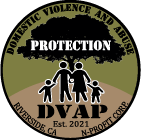Navigating life as a survivor of domestic violence or abuse can often feel overwhelming, especially in today’s hyper-connected world. However, technology, when used effectively and cautiously, can be a tool for safety, empowerment, and support. This guide offers practical advice for survivors, their loved ones, and community members on leveraging technology to enhance personal security and access vital resources, especially for those in Riverside, California.
Using Secure Messaging Apps
One of the crucial steps for survivors is maintaining safe and private communication. Secure messaging apps can provide encrypted platforms, ensuring conversations remain confidential and inaccessible to abusers. Some recommended secure messaging apps include:
- Signal: This app offers end-to-end encryption, leaving no trace of messages on servers. It also allows users to set messages to auto-delete after a specific time.
- WhatsApp: With built-in encryption for texts, calls, and video messages, WhatsApp provides a user-friendly option for anyone seeking secure communication.
- Telegram (Secret Chats): While the regular chats are not encrypted end-to-end by default, Telegram’s “Secret Chats” feature provides a secure option for private conversations.
It’s essential to regularly update these apps to ensure they have the latest security features, keeping your communications protected.
Strengthening Your Digital Security
Abusers often attempt to manipulate survivors by invading their digital privacy. Implementing the following strategies can help you maintain better control over your online presence and secure your devices:
Password Protection
- Create Strong Passwords: Use unique combinations of letters, numbers, and symbols for all your accounts. Password managers like LastPass or 1Password can help generate and store these securely.
- Enable Two-Factor Authentication (2FA): Adding an extra layer of security to your accounts requires a second form of verification, preventing unauthorized access even if your password is guessed.
Prevent Location Tracking
Many apps and devices share location data without realizing it. To prevent this, you can:
- Disable Location Services: On both Android and iOS devices, turn off app-specific location tracking in your settings.
- Use a Virtual Private Network (VPN): A VPN masks your IP address, making it harder for anyone to track your online activity.
- Consider a Burn Phone: If you’re concerned about your device’s tracking capabilities but still need reliable communication, invest in a prepaid or burn phone.
Practice Browser Safety
Switching to privacy-focused search engines like DuckDuckGo and using incognito or private browsing modes can prevent tracking of your online activity. Additionally, clearing cookies and browsing history regularly adds another layer of protection.
Minimize Your Digital Footprint
Abusers may exploit a person’s digital footprint to exert control or monitor their activity. Here are practical steps to help minimize your digital presence:
- Audit Social Media Accounts: Review your social media profiles and remove any location tags, photos, or shared content that could reveal personal information.
- Control Privacy Settings: Set social media accounts to private and avoid accepting friend requests from unknown individuals who could pose as abusers or their associates.
- Avoid Sharing Real-Time Locations: Do not post photos, videos, or status updates in real time, as they may disclose your location.
Emergency Alert Technology
When safety is threatened, having access to emergency alert tools can be lifesaving. Survivors should explore technology designed specifically to assist in emergencies, such as:
- Personal Safety Apps: Apps like Noonlight or bSafe allow users to discreetly send an alert to friends, family, or authorities with a single tap.
- Smartwear Devices: Smart jewelry or wearable tech, such as Flare, combines everyday accessories with built-in safety features like an emergency alert button.
Ensure these tools are tested ahead of time so you know how to use them in a crisis situation.
Finding Online Support
Beyond ensuring personal safety, survivors need emotional and community support. Online resources can help foster a sense of connection and provide valuable aid.
- Virtual Counseling Services: Platforms like BetterHelp and Talkspace offer professional, discreet online therapy sessions tailored to survivors of abuse.
- Chat-Based Hotlines: Services like the National Domestic Violence Hotline (TheHotline.org) provide live chat options for survivors seeking immediate assistance.
- Online Support Communities: Forums, such as those found on SupportGroups.com, connect survivors with others who have faced similar experiences, creating a space for shared understanding and advice.
Avoiding Common Digital Security Mistakes
When learning to use technology for safety and support, it’s crucial to avoid key mistakes that could expose you to further risk, including:
- Using Shared Accounts: Always create separate accounts for personal use, especially for email or financial platforms, to prevent unauthorized access.
- Ignoring Software Updates: Outdated software is more susceptible to breaches. Ensure your devices and apps are regularly updated.
- Clicking Suspicious Links: Be cautious of phishing scams sent through emails, messages, or social media. These links can compromise your security or unknowingly share your data.
You Are Not Alone
Technology, when used carefully, is a powerful tool for regaining control, maintaining safety, and rebuilding life after abuse. By protecting your digital safety, leveraging supportive online tools, and staying informed, you can take meaningful steps toward a secure and empowered future.
Are You Experiencing Domestic Violence or Abuse? DVAP Is Here To Help
Domestic Violence and Abuse Protection, Inc. (DVAP) is committed to protecting survivors and helping them achieve lasting safety and empowerment. When restraining orders are not enough, we provide the determined protection you deserve.
Visit us at 3900 Orange St., Riverside, CA, or call us 24/7 at (951)-275 8301. You can also reach out via email at admin@dvapriverside.org.
Remember, you don’t have to face this alone—help is available, and your safety is our priority.






